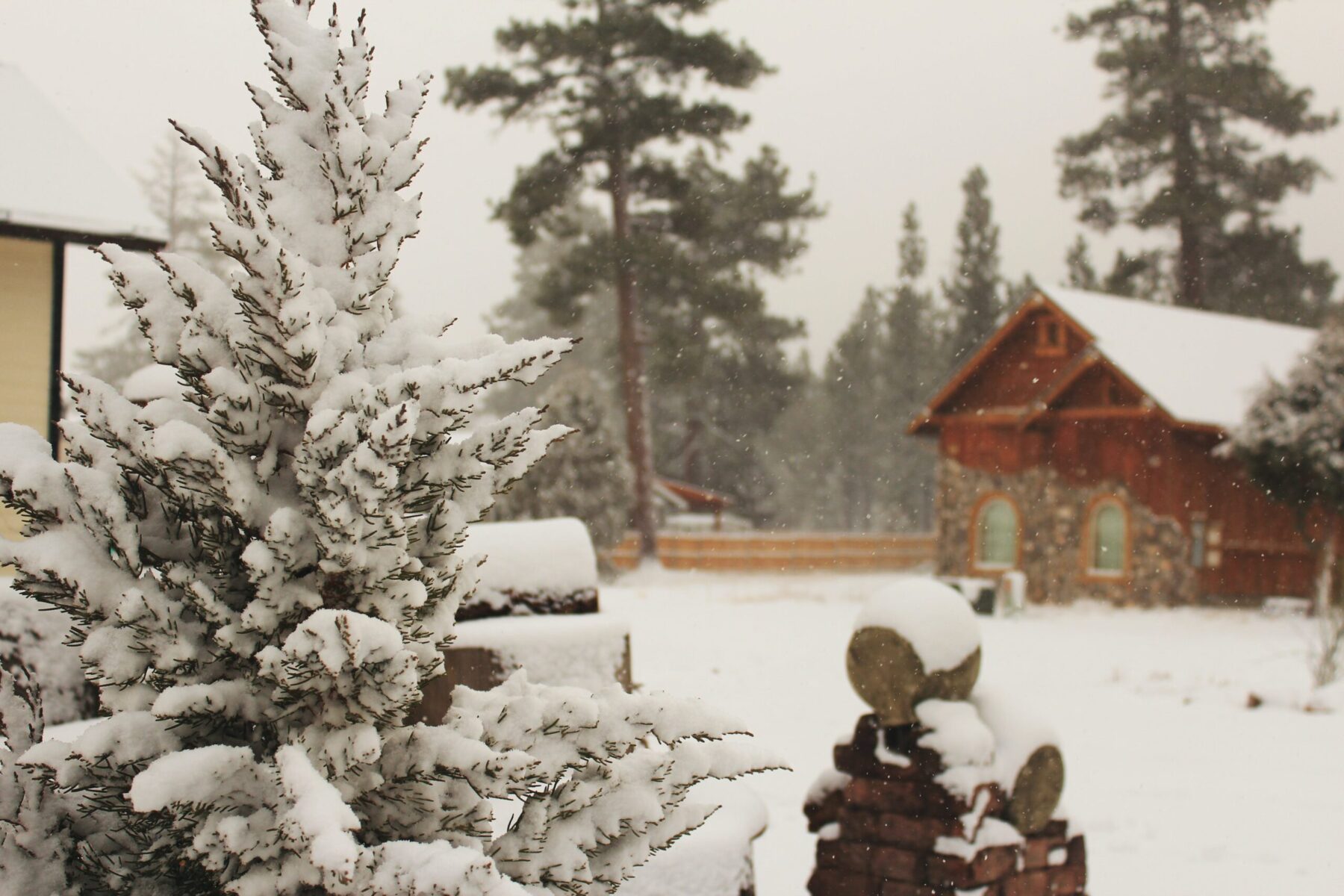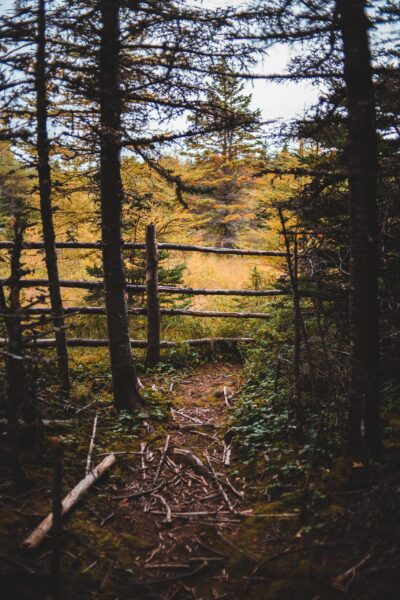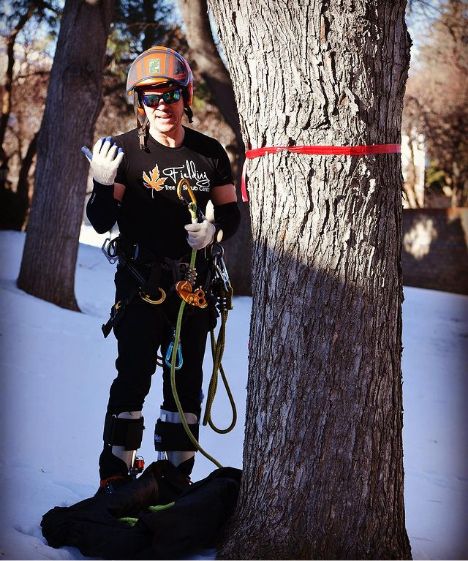The majestic, towering pines that grace countless Colorado properties provide undeniable beauty and character. However, their extensive root systems can spark worry in many homeowners. Can one property’s pine tree root system damage another nearby property? Absolutely! But the answer, like much in nature, is more nuanced than a simple yes or no. While generally not as aggressive as other species, their impressive reach can pose potential risks if left unchecked.
Fielding Tree Care is here to help! We understand the concerns and questions you might have because we’ve heard them from our customers:
- Do I need to be worried about the trees on my property?
- How far do pine tree roots even go?
- How deep do pine tree root systems reach?
- What signs should I look out for to know if there’s a problem?
This guide delves into the intricate world of pine tree root systems in Colorado, their impact on your property, and how to ensure a harmonious coexistence between your stunning trees and your cherished home. Let’s explore the fascinating world of roots, address your concerns, and equip you with the knowledge to ensure a peaceful co-existence.
Understanding The Pine Tree Root System on Your Property: Growth Patterns and Reach
How Far Do Pine Tree Roots Even Go?
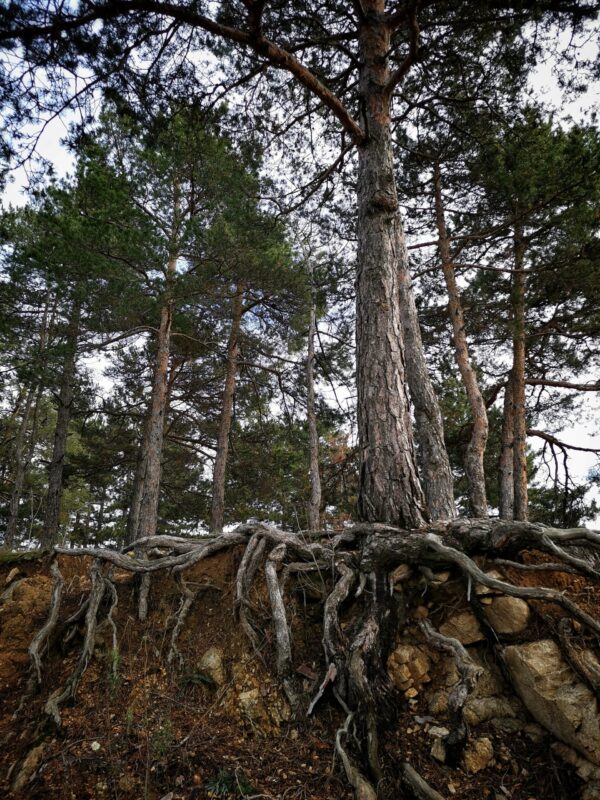
A common question with no simple answer! Pine tree roots can extend outwards as far as two to three times the height of the tree, sometimes even further depending on the species, soil conditions, and available water sources. Keep in mind, however, that most of the absorbing roots responsible for water and nutrient uptake are concentrated within the top 12 inches of soil.
Here’s a helpful rule of thumb: Consider the mature size of your specific pine tree species and estimate the potential root spread when choosing planting locations near structures or hardscapes. Remember, consulting a professional arborist for species-specific guidance is always recommended.
Unlike trees with deep taproots, Colorado’s diverse pine species boast unique shallow, fan-like root systems. Here’s a closer look at how these root systems differ:
-
Lodgepole Pine: Wide Spreading, Shallow, Dense Roots
These hardy pines have a dense, fibrous root system that spreads widely near the surface, making them well-suited to mountain slopes but potentially encroaching on structures within close proximity.
- Root Spread: Up to 50 feet wide, primarily concentrated within the top 1-2 feet of soil.
- Root Depth: Generally shallow, rarely exceeding 3-4 feet, with some occasional deeper probes in search of water.
-
Ponderosa Pine: Moderate Root System, Concerningly Deep Taproot
Known for their deep taproots with extensive lateral networks, these pines require careful consideration when planted near foundations or underground utilities.
- Root Spread: Can extend laterally 2-3 times the tree’s height (60-120 feet), but primarily concentrated within the top 3-4 feet of soil. A deep taproot can reach further down, potentially reaching 10-15 feet or more in search of water.
- Root Depth: Shallow to moderately deep, with the taproot being the main concern for potential conflicts with underground utilities.
-
Piñon Pine: Shallow Roots, Small Footprint
These drought-tolerant pines have shallow, spreading root systems adapted to rocky terrain, but their smaller size poses less property risk than larger species.
- Root Spread: Relatively shallow, extending 15-20 feet wide, primarily within the top 1-2 feet of soil.
- Root Depth: Shallow, rarely exceeding 2-3 feet.
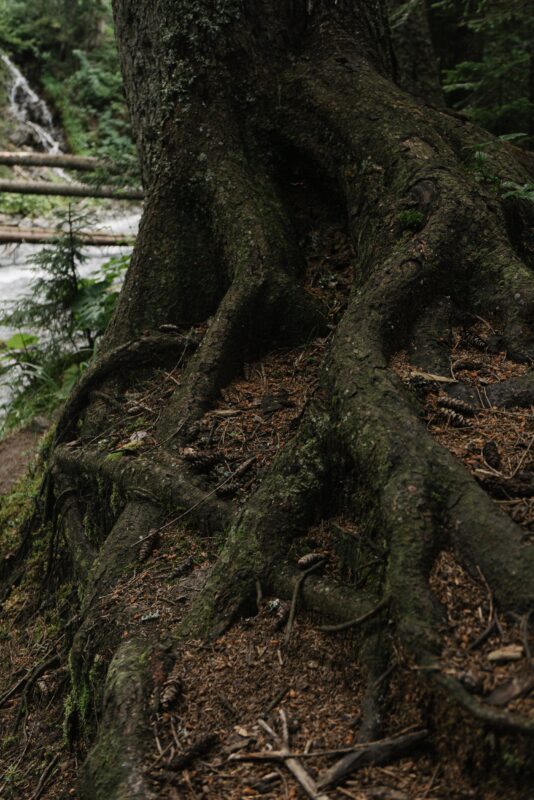 Additionally, several factors influence root behavior in Colorado’s environment:
Additionally, several factors influence root behavior in Colorado’s environment:
- Soil types: Clay soils can restrict root depth, forcing them to spread closer to the surface, while sandy soils offer less resistance, allowing for deeper root penetration.
- Mycorrhizae: These beneficial fungi form symbiotic relationships with pine tree roots, enhancing nutrient uptake and promoting healthier, less aggressive root growth.
By understanding these factors, you can gain valuable insights into how a pine tree’s root system interacts with your property. For additional information on other types of trees common to Colorado properties, visit Colorado State University’s major tree species list.
Do I Need to Be Worried About the Trees on My Property?
Many homeowners have expressed concern to our arborists in the past about the potential for pine tree roots to cause damage to their property. While it’s true that unmanaged roots can sometimes cause problems, it’s important to remember that healthy, well-maintained trees pose significantly less risk. In fact, healthy trees with strong root systems can improve soil stability and prevent erosion.
So, when should you be concerned? Look out for these signs:
Cracks In Your Foundation
If you notice cracks appearing in your foundation, especially near trees, it could be a sign of root intrusion. However, other factors like settling and soil movement can also be culprits. Consulting a professional for diagnosis is crucial.
Uneven Floors Or Doors/Windows That Stick
Similar to foundation cracks, these issues can indicate potential root pressure.
Lifted Sidewalks Or Driveways
As roots grow, they can exert pressure on surrounding hardscapes, causing them to buckle or lift.
Clogged Sewer Lines
While less common, roots can infiltrate older, damaged sewer lines, causing blockages and backups.
If you observe any of these signs, don’t panic! Early intervention is key. Contact a certified arborist to assess the situation and recommend appropriate solutions.
If you are in the South Denver, Colorado area, give us a call for a free consultation.
Protecting Your Property and Your Trees: Proactive Measures in Colorado
Fortunately, there are steps you can take to minimize the risk of damage and ensure the health of both your trees and your beautiful Colorado property:
- Plant trees at a safe distance from structures: Consider the mature size of the tree and its pine tree root system’s reach when choosing a planting location. Consulting a professional arborist can provide valuable guidance to ensure a safe distance from structures and hardscapes.
- Maintain healthy soil: Aerate compacted soil and amend it with organic matter to encourage deeper root growth, especially beneficial in Colorado’s often-dry conditions. This not only strengthens your trees but also reduces dependence on surface roots, minimizing potential conflicts with your property.
- Regular tree care is key: Proper pruning and thinning techniques can control root growth while promoting overall tree health. Remember, healthy trees are less likely to exhibit aggressive root behavior.
- Install root barriers for critical situations: In extreme cases, physical barriers like trenching or root barriers can be employed to prevent roots from reaching sensitive areas. However, this should be considered a last resort and implemented by qualified professionals to avoid unintended consequences.
Don’t wait for trouble! Early intervention is key to preventing costly damage. At Fielding Tree Care, our certified arborists offer comprehensive services to ensure a harmonious coexistence between your pines and your property:
- Tree inspections and consultations: We assess your trees and property, identifying potential root-related issues before they escalate.
- Professional pruning and thinning: Expert techniques promote healthy growth and manage root development.
- Soil aeration and root management: We optimize your soil conditions to encourage healthy root systems.
- Expert advice on tree selection and planting: We help you choose the right trees for your landscape and guide proper planting practices.
If you’re concerned about the root systems of your pine trees, contact Fielding Tree Care today for a free consultation! Then you can be sure. Let our expertise guide you toward achieving a beautiful and sustainable balance between your majestic pines and your cherished Colorado property. Remember, proactive care is an investment in the long-term health and value of both.
